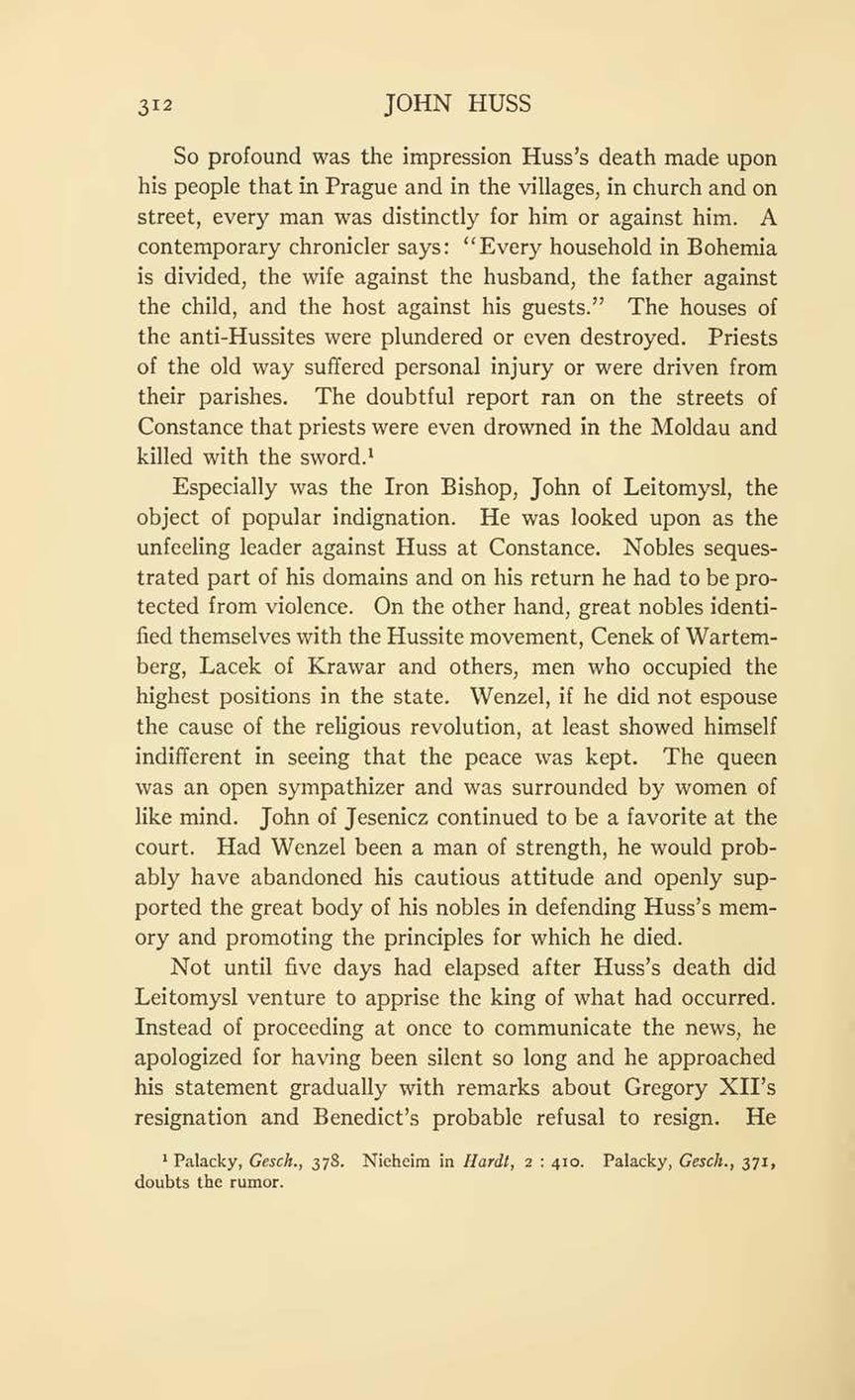So profound was the impression Huss’s death made upon his people that in Prague and in the villages, in church and on street, every man was distinctly for him or against him. A contemporary chronicler says: “Every household in Bohemia is divided, the wife against the husband, the father against the child, and the host against his guests.” The houses of the anti-Hussites were plundered or even destroyed. Priests of the old way suffered personal injury or were driven from their parishes. The doubtful report ran on the streets of Constance that priests were even drowned in the Moldau and killed with the sword.[1]
Especially was the Iron Bishop, John of Leitomysl, the object of popular indignation. He was looked upon as the unfeeling leader against Huss at Constance. Nobles sequestrated part of his domains and on his return he had to be protected from violence. On the other hand, great nobles identified themselves with the Hussite movement, Cenek of Wartemberg, Lacek of Krawar and others, men who occupied the highest positions in the state. Wenzel, if he did not espouse the cause of the religious revolution, at least showed himself indifferent in seeing that the peace was kept. The queen was an open sympathizer and was surrounded by women of like mind. John of Jesenicz continued to be a favorite at the court. Had Wenzel been a man of strength, he would probably have abandoned his cautious attitude and openly supported the great body of his nobles in defending Huss’s memory and promoting the principles for which he died.
Not until five days had elapsed after Huss’s death did Leitomysl venture to apprise the king of what had occurred. Instead of proceeding at once to communicate the news, he apologized for having been silent so long and he approached his statement gradually with remarks about Gregory XII’s resignation and Benedict’s probable refusal to resign. He
- ↑ Palacky, Gesch., 378. Nieheim in Hardt, 2: 410. Palacky, Gesch., 371, doubts the rumor.
